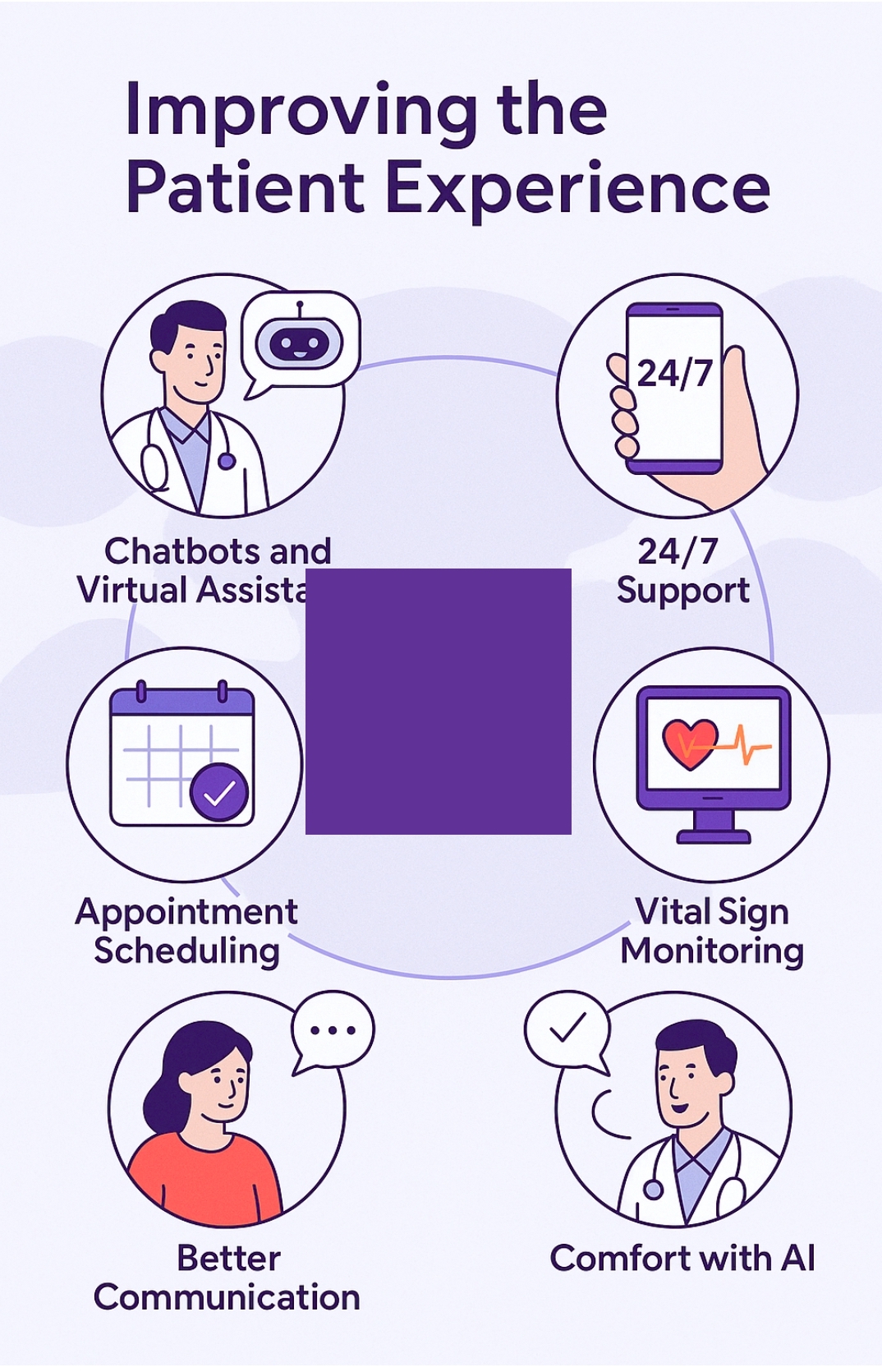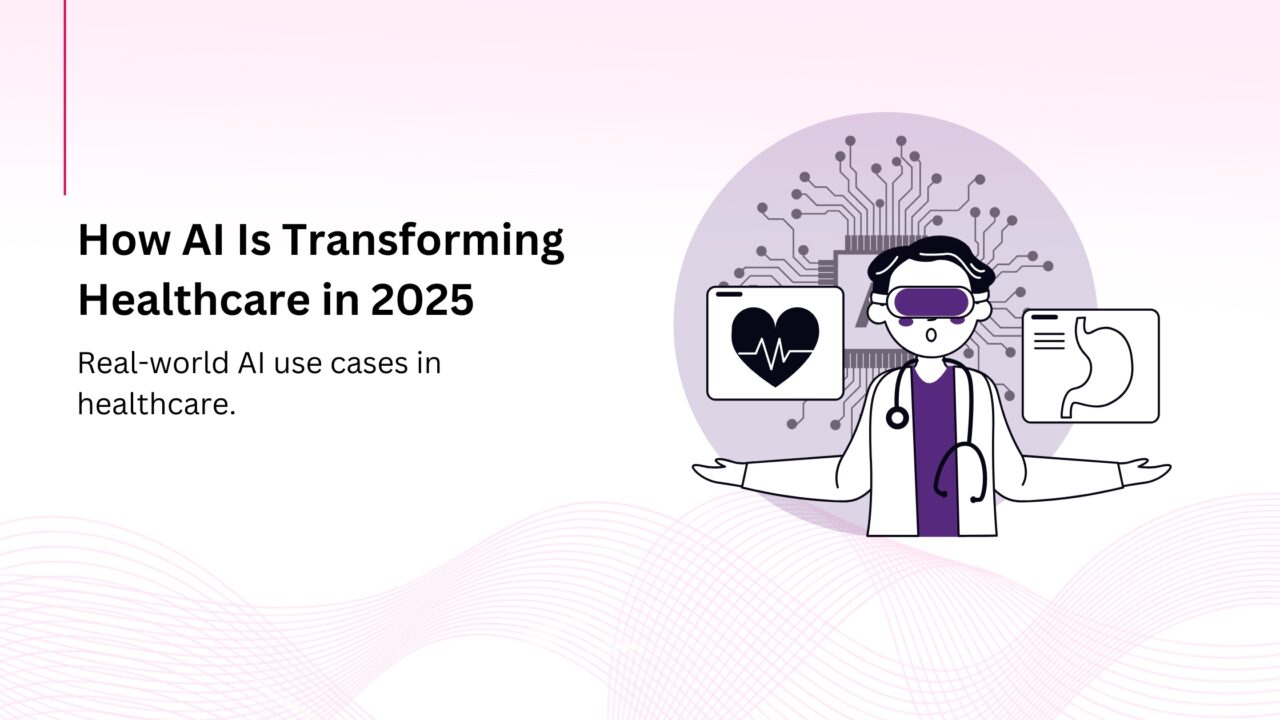Artificial Intelligence (AI) is driving one of the most significant revolutions in modern healthcare. From faster diagnosis to personalised treatment and efficient hospital operations, AI is unlocking new frontiers in patient care. In fact, the global market for AI in healthcare is projected to reach $187 billion by 2030, signalling just how fast this innovation is scaling.
At Cosnet, we’ve seen how AI, when implemented thoughtfully, can elevate care delivery and streamline complex workflows. Similar to the advances we’ve covered in our machine learning blog on supply chains, healthcare is now embracing predictive models, automation, and deep learning to solve age-old bottlenecks.
Let’s dive deeper into how AI is making an impact across healthcare.
Smarter Diagnosis and Personalised Treatment
AI has radically improved diagnostic accuracy by analysing complex datasets—like lab reports, X-rays, MRIs, and even genetic data—faster and often more accurately than traditional methods.
-
AI-assisted radiology tools are now detecting diseases such as breast cancer, lung nodules, and diabetic retinopathy earlier than ever. One study reported a 9.4% reduction in false negatives when using AI for mammogram interpretation.
-
Predictive models help doctors create personalised treatment plans based on a patient’s medical history, lifestyle data, and genomic profile.
-
In oncology, AI is being used to recommend chemotherapy protocols based on tumour characteristics, reducing unnecessary side effects.
Much like the way AI is used for predictive maintenance in logistics, as we explored here, healthcare is also shifting from reactive to proactive strategies using real-time health monitoring and early warnings.
AI in Hospital Operations and Administration
Behind every successful patient experience is a web of administrative tasks—most of which are now being automated through AI.
-
Appointment scheduling, bed management, and discharge planning are streamlined using AI algorithms that forecast patient volumes and staff needs.
-
Generative AI tools assist doctors with clinical documentation by summarising patient visits, saving hours every week.
-
AI also supports real-time inventory tracking of pharmaceuticals and medical devices, reducing waste and shortages.
Hospitals that have adopted AI-based administration tools report 20–30% gains in efficiency, reduced human error, and faster turnaround times for billing and patient onboarding.
Improving the Patient Experience
Today’s patients expect seamless care and instant support—and AI is helping healthcare systems deliver just that.
-
AI-powered chatbots and virtual assistants can answer patient queries 24/7, schedule appointments, send medication reminders, and even provide basic triage.
-
Remote patient monitoring tools collect and analyse data like heart rate, glucose levels, and oxygen saturation, alerting physicians instantly when something is off.
-
Some hospitals use AI to interpret patient feedback and sentiment from surveys, enabling better service design.
In fact, a recent survey found that 64% of patients are comfortable using AI-driven platforms for routine interactions, signalling strong acceptance of this technology.

Faster and More Cost-Effective Drug Discovery
Bringing a new drug to market can take over a decade and billions in funding. AI is compressing these timelines:
-
AI systems can analyse millions of chemical compounds in days to identify promising candidates.
-
Companies like Insilico Medicine and BenevolentAI are using machine learning to predict molecule behaviour and eliminate unsafe options early.
-
AI also helps in designing and managing clinical trials, from patient recruitment to compliance tracking.
A breakthrough example: DeepMind’s AlphaFold predicted the structure of over 200 million proteins, providing a foundation for the next generation of drug research.
Challenges to Address Before Full-Scale Adoption
Despite its potential, AI in healthcare comes with its own set of hurdles:
| Challenge | Description |
|---|---|
| Data privacy risks | AI systems require access to large volumes of sensitive health data, making cybersecurity and compliance with laws like HIPAA critical. |
| Bias in training data | Algorithms trained on non-diverse datasets may perpetuate existing healthcare inequalities. |
| Integration issues | Many healthcare facilities operate on legacy systems that are difficult to sync with modern AI solutions. |
| Lack of trust | Some clinicians and patients still hesitate to fully rely on AI outputs, especially for life-altering decisions. |
To move forward responsibly, healthcare providers must pair innovation with transparency and robust governance frameworks.
The Future of AI in Healthcare
Looking ahead, AI is expected to play a major role in:
-
Preventive care: Early detection of diseases like Alzheimer’s or cardiovascular conditions before symptoms appear.
-
Digital twins: Virtual patient models that simulate treatment outcomes before trying them in real life.
-
Health equity: AI tools designed specifically to serve underrepresented populations and remote regions.
-
Ethical AI: With the World Health Organization issuing formal guidelines, the focus is shifting toward responsible innovation that centres on patient autonomy and public trust.
As AI technology evolves, its role in shaping better, more inclusive, and efficient healthcare systems will only grow.
Final Thoughts
AI in healthcare isn’t just about automation—it’s about amplifying human potential. From helping radiologists diagnose faster to empowering patients with real-time support, AI is making healthcare smarter, faster, and more humane.
If you’re a healthcare organisation exploring how AI can enhance your systems—whether through diagnosis, patient experience, or operations—Cosnet is ready to help. With our experience in AI-powered product development, we bring the technical depth and domain insight to drive meaningful change.
Frequently Asked Questions (FAQs)
1. What are the top applications of AI in healthcare?
AI is used in medical imaging, predictive diagnostics, patient engagement tools, hospital operations, and drug discovery.
2. How is AI different from traditional healthcare technologies?
Unlike rule-based systems, AI can learn and adapt over time, offering dynamic insights based on real-time data.
3. Can AI replace doctors?
No, AI complements medical professionals by handling repetitive tasks and offering decision support—not replacing clinical judgement.
4. What are the data privacy concerns in AI healthcare?
AI requires access to sensitive health data, so strong data encryption, patient consent systems, and compliance with regulations like HIPAA are crucial.
5. How can small clinics adopt AI?
Even small practices can use AI-driven tools like chatbots, virtual scribes, and predictive appointment scheduling to improve efficiency and patient engagement.

